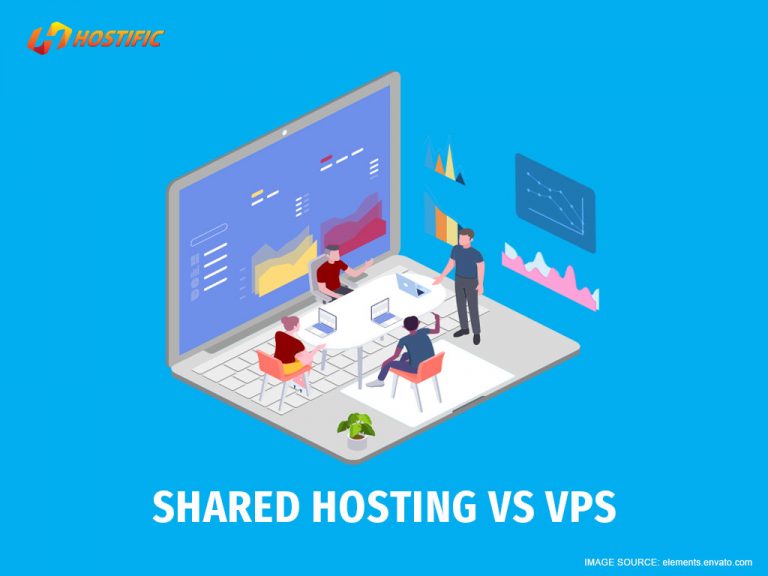Whether you already own a website and are looking at upgrading or you are a newbie getting ready to launch your first website, you’ll need the best web hosting services. However, choosing the right web hosting provider can be difficult. Not only are there several hosting options to choose from but there’s an ever growing number of hosting service providers. Knowing what your needs are and the type of hosting solution that best suits them is the first step on your web hosting journey. We’ll explore shared hosting and Virtual Private Server (VPS) hosting to help you decide if either of them suits your web hosting desires.
Table of Contents
A Simple breakdown of shared hosting
You and seven of your closest friends decide to have a pizza party. You all pool funds and got a couple of drinks and one large cheese pizza. And you had to get just cheese because it was cheap, even though you prefer pizza with topping. Two other friends stop by. The large pizza comes with 12 slices as a result some persons got two slices while others got just one. In the end, everyone was still hungry. That scenario simply defines shared web hosting.
There’s a single server with several users. Everyone shares the resources and if one tenant on the server uses up a significant amount of the resources such as RAM and bandwidth the others are affected.
With shared hosting, you get just a slice.
Pros
- It’s cheap.
- It’s easy to manipulate for beginners.
- You don’t need to manage the server, but can track your server usage.
- Most hosting providers offer free cPanel with shared hosting accounts so that users can easily manage their web accounts.
- For small to medium websites you’ll have more than enough server resources for daily operations.
Cons
- If there’s a spike in traffic on the server it can slow down your website.
- It offers basic security features. If another site sharing the server is hacked, it could affect your website as well.
- It’s not very scalable for large websites because it has limited bandwidth and storage.
A Simple breakdown of Virtual Private Server (VPS)
However, if for the pizza party you and friends decide to purchase your own pizzas. Everyone is able to get the toppings he/she prefers. Sure, it costs more but everyone is satisfied with the pizza they choose and even have leftovers. That’s how VPS operates. Though there is a singular server, it is divided into smaller separate private servers. This way all the resources on your server is yours and most of all the activities of others will not affect you or your quality of service. VPS hosting is more than just a slice, it’s a whole pizza. Therefore, you have more fallibility and control.
Pros
- You can pay for only what you need. It’s also cheaper than dedicated servers.
- It’s more secure, since servers are isolated on a private network on the same saver.
- Speed is not a problem! VPS is fast. It has much more resources allocated to it than shared hosting.
- You have more control and can customize your server to meet your specific needs because you are given access to the root server.
- It is scalable. VPS resources expand with your growing website needs. Simply increase the resources as the need arises.
Cons
- It costs more than shared web hosting.
- If you opt for an unmanaged VPS, especially without technical expertise it will be difficult to configure. Therefore, it may take a bit longer to get your website up and running.
What sets Virtual Private Servers apart from shared hosting in a Nutshell
The proof of how good a server is can be measured by its performance, resource allocation and security among other things. Here’s our breakdown of how well VPS and Shared hosting do when compared in these categories.
1. Server Performance
Shared Hosting
You run the risk of another website on the shared server affecting your performance. However, if you don’t demand a lot of resources to run your website then shared hosting will work well for you.
Virtual Private Server
As is obvious more resources mean better performance. As a result, VPS clearly offers higher overall performance than shared hosting because it has a greater allocation of resources including strong bandwidth. With this comes more flexibility to configure your server’s applications and software. If you manage multiple websites or have high traffic demands VPS is a better option for you.
2. Server Resources
Shared Hosting
You should expect to face limitations when you share resources with others. With shared hosting, there is a maximum allocation of CPUs, memory/RAM, and disk space. As such, your website will not be able to go beyond the maximum allocation. This will not be an issue for you if your website doesn’t require a lot of processing power or space.
Virtual Private Server
One of the benefits of VPS hosting is the private disc space that it comes with. It also offers higher availability of overall resources. This makes it ideal for persons wishing to expand their business and facilitate a better user experience for customers.
3. Server Security
Shared Hosting
Shared hosting offers basic security features. That means, it’s more likely to be affected by security breaches than you would with VPS. However, if your website does not need customers’ personal information you won’t have a major issue.
Virtual Private Server
VPS hosting offers more robust security features to help keep your site and customer information secure. If your business deals with and needs to protect personal data, then VPS hosting is worth considering.
4. Scalable web hosting service
Shared Hosting
Shared hosting is easy to use for any beginner and that’s why it’s usually the first stop on the hosting journey. However, once your website starts growing you may face scalability issues and will have to upgrade. Once you’re close to the end of your storage capabilities, or if user demand is beginning to surpass your server space, it’s time for a more robust hosting service.
Virtual Private Server
Scale quickly and easily with VPS. If you are using a shared server and you have just about maxed out on resources, switch to a VPS is a great option. Also, if you are launching a new website which is expected to grow quickly just go right ahead and invest in VPS hosting. It costs more than shared hosting but will pay off in the future.
The verdict
Shared hosting works well for websites that are static in nature. It is a good option for blogs and start-ups. While individuals and businesses with online stores, small to medium size companies or a large personal blog that gets a significant amount of traffic should definitely go with VPS hosting. It offers increased security, greater performance and more flexibility to customize and grow your brand. Hostific offers high quality, top performing web hosting plans from for every hosting need.






